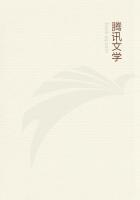(3) The third is, supposing certain additions would bring an inference about but yet these additions were to be weaker than those that were put as questions and less generally held than the conclusion.
(4) Again, supposing certain withdrawals could effect the same: for sometimes people secure more premisses than are necessary, so that it is not through them that the inference comes about.
(5) Moreover, suppose the premisses be less generally held and less credible than the conclusion, or if, though true, they require more trouble to prove than the proposed view.
One must not claim that the reasoning to a proposed view shall in every case equally be a view generally accepted and convincing: for it is a direct result of the nature of things that some subjects of inquiry shall be easier and some harder, so that if a man brings people to accept his point from opinions that are as generally received as the case admits, he has argued his case correctly.
Clearly, then, not even the argument itself is open to the same adverse criticism when taken in relation to the proposed conclusion and when taken by itself. For there is nothing to prevent the argument being open to reproach in itself, and yet commendable in relation to the proposed conclusion, or again, vice versa, being commendable in itself, and yet open to reproach in relation to the proposed conclusion, whenever there are many propositions both generally held and also true whereby it could easily be proved. It is possible also that an argument, even though brought to a conclusion, may sometimes be worse than one which is not so concluded, whenever the premisses of the former are silly, while its conclusion is not so; whereas the latter, though requiring certain additions, requires only such as are generally held and true, and moreover does not rest as an argument on these additions. With those which bring about a true conclusion by means of false premisses, it is not fair to find fault: for a false conclusion must of necessity always be reached from a false premiss, but a true conclusion may sometimes be drawn even from false premisses; as is clear from the Analytics.
Whenever by the argument stated something is demonstrated, but that something is other than what is wanted and has no bearing whatever on the conclusion, then no inference as to the latter can be drawn from it: and if there appears to be, it will be a sophism, not a proof. A philosopheme is a demonstrative inference: an epichireme is a dialectical inference: a sophism is a contentious inference: an aporeme is an inference that reasons dialectically to a contradiction.
If something were to be shown from premisses, both of which are views generally accepted, but not accepted with like conviction, it may very well be that the conclusion shown is something held more strongly than either. If, on the other hand, general opinion be for the one and neither for nor against the other, or if it be for the one and against the other, then, if the pro and con be alike in the case of the premisses, they will be alike for the conclusion also: if, on the other hand, the one preponderates, the conclusion too will follow suit.
It is also a fault in reasoning when a man shows something through a long chain of steps, when he might employ fewer steps and those already included in his argument: suppose him to be showing (e.g.) that one opinion is more properly so called than another, and suppose him to make his postulates as follows: 'x-in-itself is more fully x than anything else': 'there genuinely exists an object of opinion in itself': therefore 'the object-of-opinion-in-itself is more fully an object of opinion than the particular objects of opinion'.
Now 'a relative term is more fully itself when its correlate is more fully itself': and 'there exists a genuine opinion-in-itself, which will be "opinion" in a more accurate sense than the particular opinions': and it has been postulated both that 'a genuine opinion-in-itself exists', and that 'x-in-itself is more fully x than anything else': therefore 'this will be opinion in a more accurate sense'. Wherein lies the viciousness of the reasoning? Simply in that it conceals the ground on which the argument depends.












